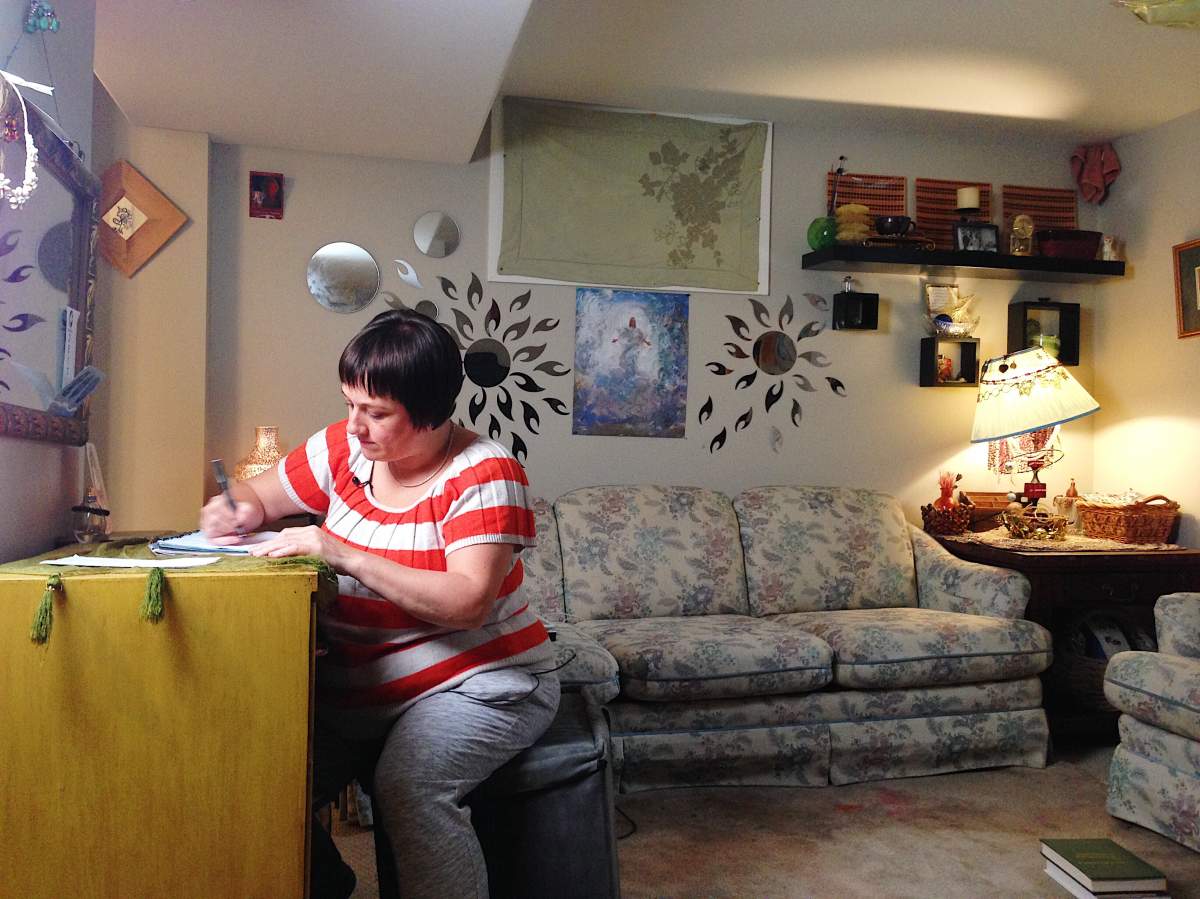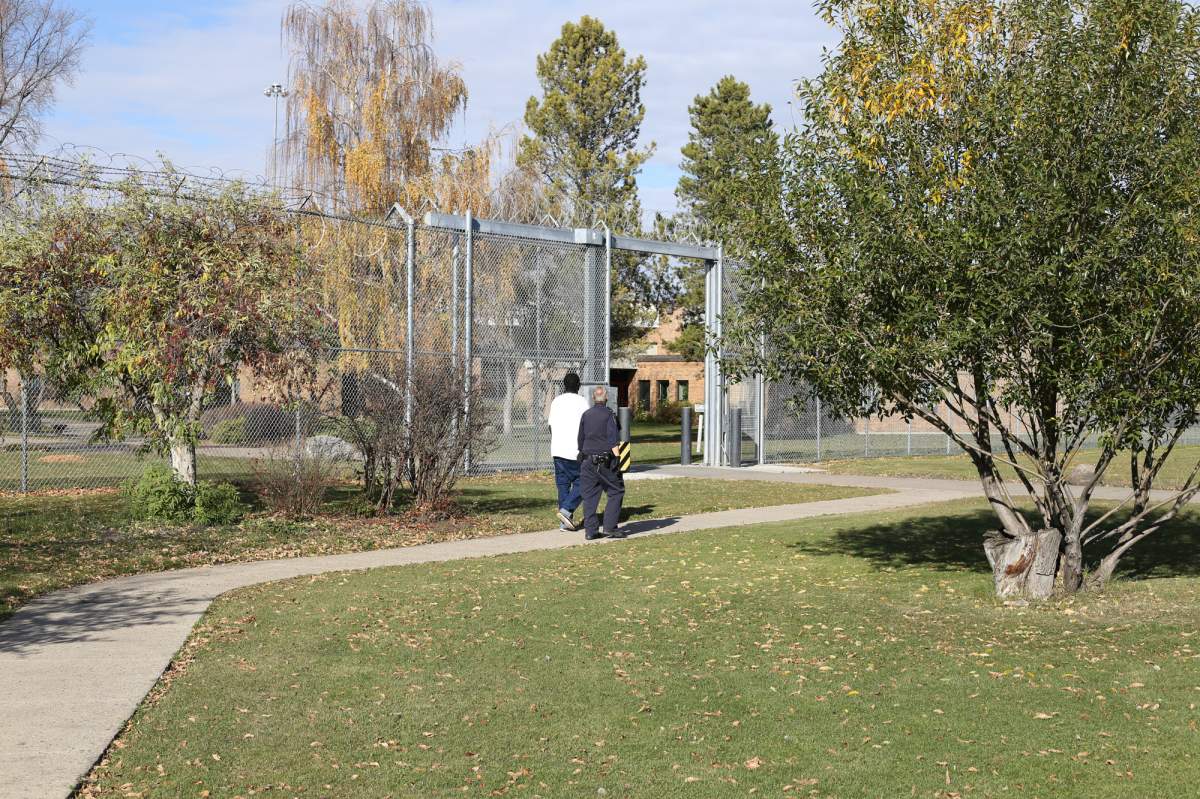
Tasha Brown knew when she started Inmate Ink, an online site for strangers to volunteer to write letters of hope and encouragement to men and woman serving time behind bars, it wasn’t going to be easy.
But she felt compelled to do something greater for society and create connections for people who are historically forgotten.
“For an inmate to receive a letter, it could be life-changing,” Brown said. “They’ll know somebody cares about them on the other side.”
“Just because they’re in jail, it doesn’t mean all their human rights should be taken away from them.”
Her organization links convicts with pen pals. The prisoners pay a small fee to be profiled and their offences are disclosed.
READ MORE: Dating website helps Canadian inmates find love
Those interested volunteer to write letters to a criminal they choose. Some of them are murderers – others have committed sex crimes, robberies and home invasions.
“I in no way condone any crimes any inmate has committed. They committed a crime; they should be punished and are being punished,” Brown said. “However, they will be released one day and we want those people to be rehabilitated.”
She’s done a lot of research and there’s documented evidence suggesting once they’re released, former convicts are less likely to reoffend if they are shown empathy and are included in a community.
“A recent Yale study found if there’s negative affect, there’s not a far leap to not be able to seek work and most will go back to crime,” Brown said. “If we want a safe and just society, we need to do what we can to treat all people with dignity.”
Brown draws on her own personal experience, too. She’s been corresponding with her stepfather for nearly 30 years. He’s been incarcerated since her mother married him. The couple was wed while he was behind bars.

Get daily National news
“I’ve been through a lot in my past and there hasn’t been a steady father figure,” Brown said. “I’ve been through foster care and as I was growing up, there was always these letters. And he would always say the things a dad would say to a daughter and it’s encouraging.”
A number of people have signed up to write letters to prisoners.
Jennifer Armstrong communicates through letters with two separate inmates.
“At first I thought, ‘Why would you want to write to a murderer or someone sentenced to 50 years in jail? That’s crazy,'” Armstrong said.
“Not a lot of people would be willing to do this.”
But she believes in redemption.
“You can’t give up on any human being. We have to help people in pain,” Armstrong said. “Maybe if we treat them better than what they’re used to, they can rise above and become better people in society.”
But that extension of grace is hard to come to terms with for some people.
Karen Venables lost her teenage son 15 years ago. Devin died from a single punch. The young man responsible was convicted of manslaughter.
“I wish my son had a second chance,” Venables said. “Anyone who lost their loved ones to murder would like a second chance, but they can’t because they’re gone.”
“You can earn a second chance when you’re released. You took a life. Second chances? Maybe. But you have to earn that second chance.”
Global News reached out to a couple of inmates featured on Inmate Ink. Our interview requests were denied by the Correctional Service of Canada.
But one of the male prisoners wanted to share a letter to express what it’s like on the inside and the value of having someone writing to them.
Below is a portion of his letter, sent to Global News reporter Jill Croteau:
“First I should say that I don’t think that the rehabilitative potential of prisoners can be fully actualized in an existing ‘corrections’ system that for the most part not only fails to correct but that makes it almost impossible for correction to occur (those prisoners that do succeed in bettering themselves seem to do so – again, for the most part – not because of the system but despite it). Serious structural transformation of the system is therefore required.
Having said that, I nevertheless think that even with the current system being as vile and violent and as counterproductive to genuine healing as it is, a little kindness & humanity can in and of themselves go a long way in helping prisoners to reconnect with their inner potential for love & connection.
The sad reality is that most prisoners feel like sh*t, they hate their lives and they feel like worthless losers. Further living in an environment where kindness and empathy are considered naive and weak. Prisoners tend to wear self-protective gear of toughness, cynicism, selfishness, anger and even outright hatred, thereby further burying their own humanity and deepening their sense of self-hatred and worthlessness, which in turn leads to even more self-protective gear. It can be quite the vicious cycle…
But cycles can be broken, and sometimes all it takes is a simple act of kindness or a simple reminder to the suffering prisoner that he (or she) is valuable and can be of value to others. A letter from a stranger, from someone in the community, can serve as that simple act or reminder. When receiving a letter from a perfect stranger, a prisoner feels valued, given that the person actually took the time and effort to write to him! In replying to the letter, the prisoner naturally wants to put the best of himself forward, and he can’t effectively do this without first taking off his self-protective gear – if only momentarily. By doing so he suddenly finds himself reconnecting with and even foregrounding the humanistic parts of himself that he had become accustomed to suppressing. It’s kind of like the inmates looking into a mirror that reflects the deepest part of himself and suddenly remembering, ‘Oh yeah, that’s who I am! I forgot about him!’ From that “spark” of humanity can ignite a tiny flame that begins to warm the soul. (Healing can thus begin…) And from that tiny flame can eventually burst into a blazing fire that burns that self-protective gear right off! ( Healing can thus spread…) All of this begun by just one simple letter from a stranger.”










Comments